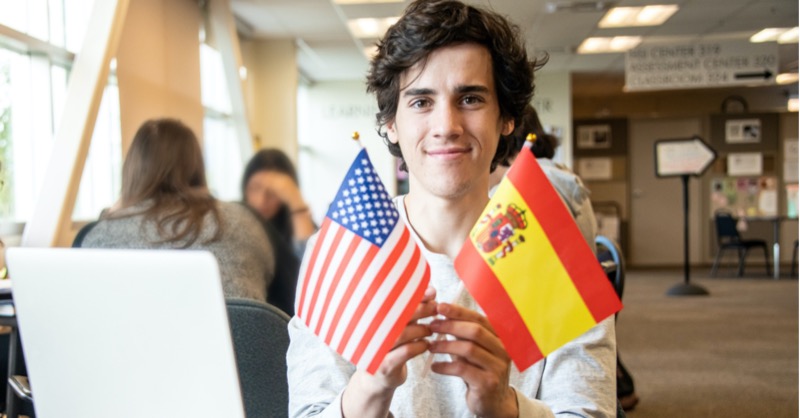Half of U.S. adults think international students benefit the economy and campus life
Approximately half (51%) of recently surveyed American adults “believe the U.S. benefits from the presence of international students,” yet more than one-third (37%) have no opinion on the matter. Eleven percent said they don’t believe international students benefit the country. “Respondents aged 55 to 64 were least supportive of international students, while those aged 25 to 34 were most supportive. Women and men were nearly identical in responding favorably, while men were significantly more likely to respond negatively. Results were also broken out by location, with respondents in the west being the most supportive and those in the south being least supportive.”
Source: University Business
The pandemic is taking a toll on MBA job and internship opportunities
So far this year, “36% of 2021 MBA candidates have had job offers and internships rescinded or changed because of the ongoing health crisis. That’s an increase from a little over 20% of 2020 MBA graduates who reported the same.” International students in the class of 2021 were more likely than their domestic peers to say an offer had been rescinded or changed, and “50% of international students said that that they ‘strongly agree’ that the pandemic affected their ability to get an offer.” Overall, “research indicates dramatic impacts on hiring outcomes during the 2019-2020 recruiting season as a result of the global pandemic, as one would expect from such sudden and severe restrictions on in-person gatherings, travel and more. These impacts are particularly acute for first year MBAs and international students.”
Source: Poets & Quants
Few laid-off workers enroll in public colleges
Research conducted by the National Bureau of Economic Research (NBER) has revealed that “for every 100 displaced workers, only one ends up enrolling at a public college.” Within that small cohort, only 29% eventually graduated with a degree. The majority of those who did enroll in college after losing a job had previously been employed in manufacturing. “The study shows that higher education needs to be more flexible… Students and workers need more options, like credentials that can be completed more quickly… Outreach is also a key factor. A study in Ohio found that sending letters with information about colleges and Pell Grant eligibility to people receiving unemployment insurance improved enrollment rates.” The NBER report used data from 2002 to 2009 in Ohio to explore the relationship between mass layoffs and enrollment at two- and four-year public colleges.
Source: Inside Higher Ed
Justice Department accuses Yale of discrimination in admissions
Following a two-year investigation of Yale University’s admission practices, the U.S. Justice Department determined “that the Ivy League school illegally discriminates against White and Asian American applicants in the highly competitive process of choosing an undergraduate class. The department said it had concluded that the university gave too much weight to race in reviewing applications, in violation of federal civil rights law.” Yale denied the allegation. According to one analysis, the findings “represented the Trump administration’s latest challenge to affirmative action in higher education, particularly the consideration of race in selective college admissions.” Last year, a federal judge sided with Harvard University after a lawsuit accused the school of bias against Asian Americans in admissions. The plaintiffs in that case have appealed the ruling. “Not all colleges consider race in admissions. Some states, including California and Florida, bar public universities from looking at race or ethnicity. But race-conscious admissions is a widespread practice that the Supreme Court has long allowed, as long as schools do not use quotas and follow certain other restrictions. Opponents of those rulings are hoping to find a way to get the issue back in front of the Supreme Court.”
Source: Washington Post
